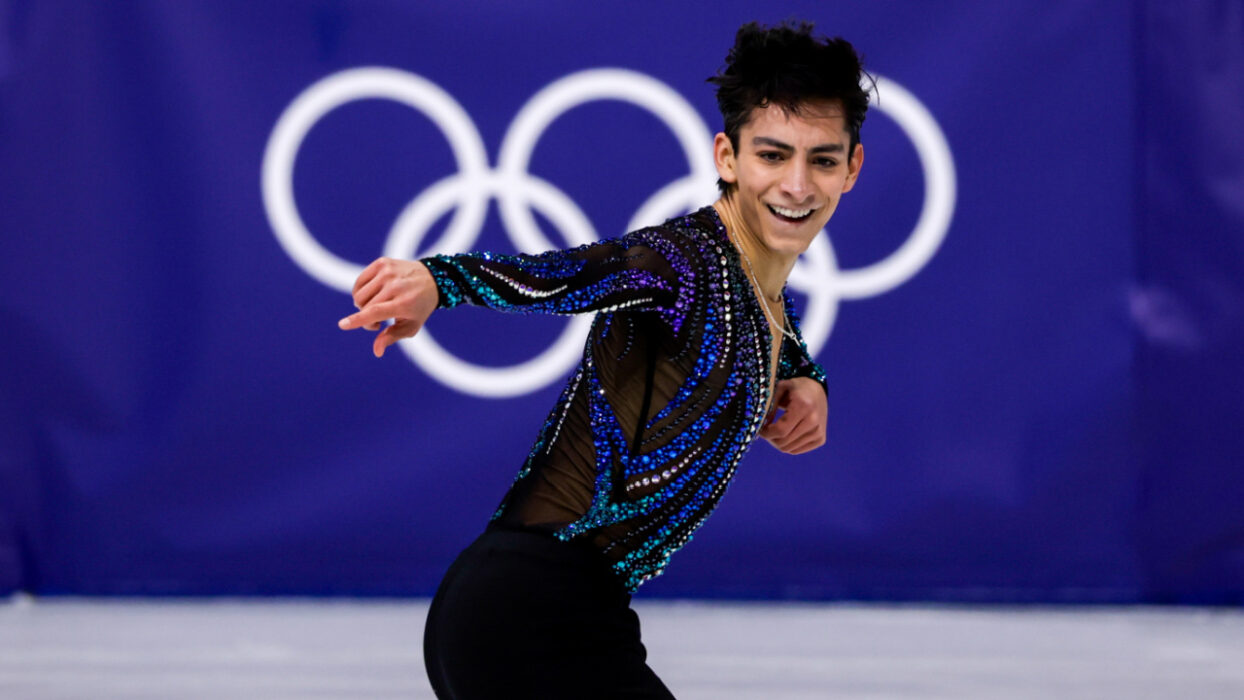
Oscar Isaac’s SNL Monologue Poked Fun at Being Latino in Hollywood: ‘I’m Half-Guatemalan, Half-Cuban. Or, As Casting Directors Call It, Ethnically Ambiguous’
Guatemalan-Cuban actor Oscar Isaac, 42, is a powerhouse actor that has a range few can rival: he played megarich, complex tech genius Nathan in “Ex Machina,” French painter Paul Gauguin in “At Eternity’s Gate,” Joseph in the biblical drama “The Nativity Story” and more recently, main character Marc Spector in Marvel’s “Moon Knight.”
Isaac’s Juilliard-trained acting chops allow him to morph right before our eyes, and the result is many times uncanny. Still, his SNL monologue last weekend gave us all an inside look into the world of Hollywood casting — especially what it looks like for a Latino.
Isaac’s journey has been a long, winding one, being born in Guatemala City to a Guatemalan mother and a Cuban father and quickly moving to his hometown of Miami, Florida where he joined a ska band and made home videos.
He soon attended The Juilliard School in New York City where he cemented his Shakespeare, and years later, became cinema’s leading man of choice. But as a Latino actor, Isaac’s “look” and even his name have been up for discussion by casting directors, even if he makes fun of those situations today.
The “In Secret” actor’s appearance on SNL on March 5 included tons of clips of adorable “ninja assassin” home movies he made at 10 years old, while also joking about his experiences in Hollywood.
He began, “My name is Oscar Isaac but my full name is Oscar Isaac Hernandez Estrada. I said to Hollywood, you can pick two of these names. Guess what they went with? The white ones.” Met with an uproar of laughter, the actor continued, “I’m half-Guatemalan, half-Cuban. Or, as casting directors call it: ‘ethnically ambiguous.’ According to them, I can play anything from a pharaoh to Timothée Chalamet’s daddy.”
Isaac kept the laughs going, saying, “you know that joke ‘a priest, a rabbi, and a minister walk into a bar’? Yeah, I can play anyone in that joke.”
While the actor used humor throughout the monologue, it touched on crucial points: while Isaac has surely been met with racism in Hollywood, he has also used his “ethnically ambiguous” look to his advantage. Isaac turned hurdles into his superpower, and is now a go-to actor for roles ranging from a former prison inmate in “Drive” all the way to an English king in “Robin Hood,” to a Russian security guard in “W.E.” There’s no doubt Isaac has changed the game, paving the way for Latino representation in every single kind of Hollywood role.
It’s not the first time Isaac talks about being a Latino in Hollywood.
The actor once told EFE, “we Latin American actors don’t just know how to play gangbangers and villains.” He continued, “I’ve had the luck to play characters from all over the world, and that for me is very important.”
Isaac also described to GQ how landing his role as the king of England in 2010’s “Robin Hood” may have altered the rest of his career: “being a Latino kid from Miami, where the best you could hope for is going out for Spanish commercials and, like, Gangster Number Three, which is crazy… and then to have Ridley Scott be like, ‘Yeah, you can be king of the whites.’ It was amazing.”
Isaac has historically resisted stereotypes in his roles, and even worked with directors to ensure authenticity.
In fact, when offered the role of ex-prisoner Standard in 2011’s “Drive,” he initially thought about turning it down. He explained to The Dinner Party Download, “I just felt that the character was a cliché and, you know, he was just written as this gangster.” He continued, “this thug that was horrible to his family, lived a life of crime, and then you just wanted him to die so the white people could get together.”
Isaac said the “Drive” director Nicolas Refn sat with him for “about four hours” to reformulate the character: “we decided to make him a tragic character. Maybe someone who made a couple bad decisions, but actually loved his family and was trying to do the right thing, but gets caught up in violence. And it actually makes it more dramatically interesting.”
Talking about refusing to play into stereotypes, Isaac said: “it’s a process of also being able to say ‘no’ even when the project seems great, because it’s perpetuating something.”
The actor put it best when he told The Daily Beast, “I’m most definitely Latino. That’s who I am,” continuing, “but at the same time, for an actor it’s like, I want to be hired not because of what I can represent, but because of what I can create, how I can transform, and the power of what I create.”




